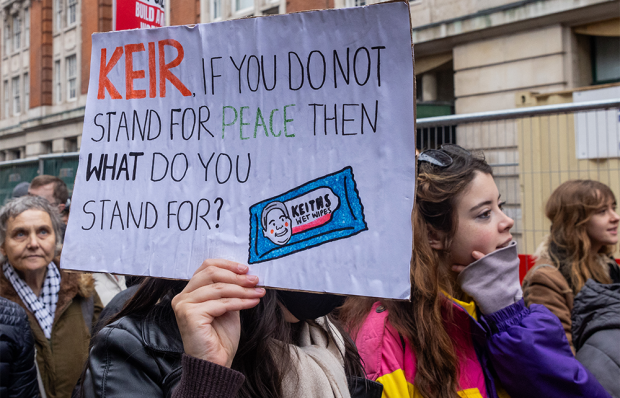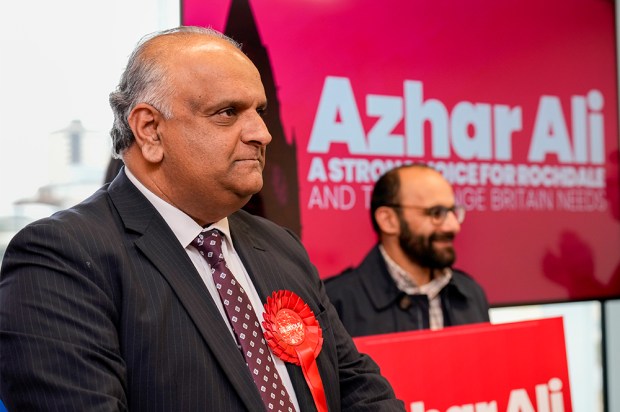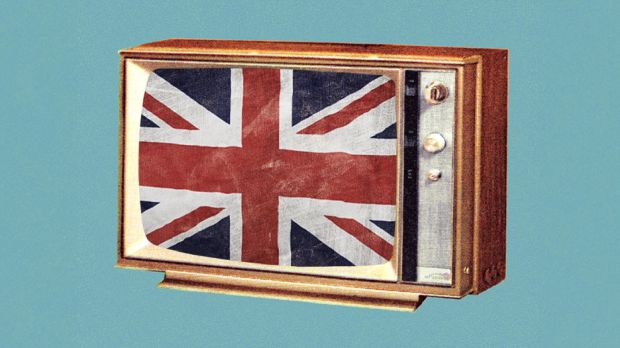I was intrigued to learn that Kamala Harris, the Vice President of the US, is worried about racist trees. I have always held trees in the deepest suspicion: it is their long-abiding silences which worry me. As we know from Black Lives Matter, ‘Silence is violence’ — and trees, for literally aeons, have been conspicuously silent on the matter of white privilege and racism. To follow this logic, then, trees are inherently violent. Nasty, leafy bastards.
This certainly seems to be what Ms Harris thinks. During a visit to Nasa, instead of asking those space boys how to reverse park a shuttle, she instead became obsessed with keeping an eye on trees. Referring to a satellite she was being told about she said: ‘Can you measure trees — part of that data that you are referring to, [and it’s an issue of] EJ, environmental justice — that you can also track by race their averages in terms of the number of trees in the neighbourhoods where people live?’
In other words she had identified trees as being racist. Her point was that white people get to live in places where there are more trees than there are in predominantly black neighbourhoods. I fear that this is true and it seems likely to me that the trees, being racist, move out of certain areas when they see black folks moving in. They up their roots and skedaddle. It is the arboreal equivalent of white flight. Any good liberal would recognise that the only answer to this is Affirmative Deforestation (AD) and the ‘bussing’ of trees into areas where more black folks live. Either that or I suppose bus the black people into areas where there are lots of trees. I would prefer the former option because it would teach those racist trees a valuable lesson.
I fervently hope the Democrats make AD an important part of their platform because, as Ms Harris was speaking, thousands of swing voters from Juneau to Jacksonville finally conceded that most of the Democratic party are on a one-way ticket to the booby hatch. They have become obsessive and deranged over race, perpetually seeking new hitherto undreamed-of ways in which to ramp up the victimhood and create more division between black and white, because there can never be quite enough — and almost all of it based on lies, falsehoods, non sequiturs and delusions. So, a strong commitment on behalf of the Democrats to end white domination of silviculture, plus compulsory reverse mentoring of the trees themselves by people of colour, might just persuade another million or so US voters to go Republican. The Democrats would be following a noble path: it is now more than two years since Alexandria Ocasio-Cortez decided that cauliflowers were racist and yet since then little has been done to root out bigotry among American vegetation.
The soft left insists that none of this stuff matters. By soft left I don’t mean the maniacs who promote this sort of hilarious bilge, but their useful-idiot fellow travellers who may occasionally be slightly embarrassed by what John Gray calls hyper–liberalism in the field of, say, gender or race but kid themselves that it doesn’t matter to the average voter.
For example, earlier this year the Fabian Society published a report which the Guardian claimed proved that hardly anyone cares about the culture wars, while reporting that a significant tranche of the population had never even heard of stuff like cultural appropriation. The suggestion is that the right rages about this stuff but people are perfectly happy to go along with it and that this supposed ‘war’ has been confected by the right, not the left. Another delusion: stuff happens on the left and the right reacts to it, usually with incredulity.
The notion, though, that nobody really cares about the ‘culture wars’ is a patent falsehood. The public may not know the terms and the vocabulary of the mentalist left and in some cases — such as the ludicrous notion of ‘environmental justice’ — think that it all sounds very reasonable. But care they most certainly do — as 2 November’s gubernatorial vote in Virginia demonstrated very handily. Virginia is a deep blue state and has been since 2008. Last year Joe Biden won it by a margin of 10.1 per cent. But last week Republican Glenn Youngkin beat his Democratic rival Terry McAuliffe, largely, it seems, because Virginians greatly objected to the horrible doctrine of critical race theory being rammed down the throats of their children.
Let’s be clear, there is also a great deal of voter disillusionment with the somnambulant President Biden, who is now seen as being weak, past it, devious, a semi-conscious stooge of the far left, etc. But the Virginia result was of a much greater magnitude than simply your usual pre-midterm disaffection. Youngkin hammered away at education and the critical race theory stuff in particular, and as a consequence got overwhelming support from, especially, white women who have children. Of course his opponent tried to portray this campaigning as ‘racist’ (as well as trying to tie Youngkin to the coat-tails of Donald Trump), and since the result came through lefties both here and in the US have claimed that Youngkin was indulging in ‘dog-whistle politics’ and appealing to racism. That is likely to become a familiar recourse: object to anything to do with identity politics and the left will insist that it is mere racism.
Virginia convinced me, perhaps over-optimistically, that the culture war could eclipse the economy and be the major battle-ground both in the US and here, come the next election. All it needs is for an enterprising political party (yes, such as the one to which I belong, the SDP) to choose its issue carefully. Schooling is the answer: whether it be the Stonewall-sponsored rot on trans-genderism or teachers telling white kids how privileged they are, Virginia has shown the way forward.
Got something to add? Join the discussion and comment below.
Get 10 issues for just $10
Subscribe to The Spectator Australia today for the next 10 magazine issues, plus full online access, for just $10.
You might disagree with half of it, but you’ll enjoy reading all of it. Try your first month for free, then just $2 a week for the remainder of your first year.















Comments
Don't miss out
Join the conversation with other Spectator Australia readers. Subscribe to leave a comment.
SUBSCRIBEAlready a subscriber? Log in